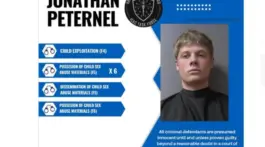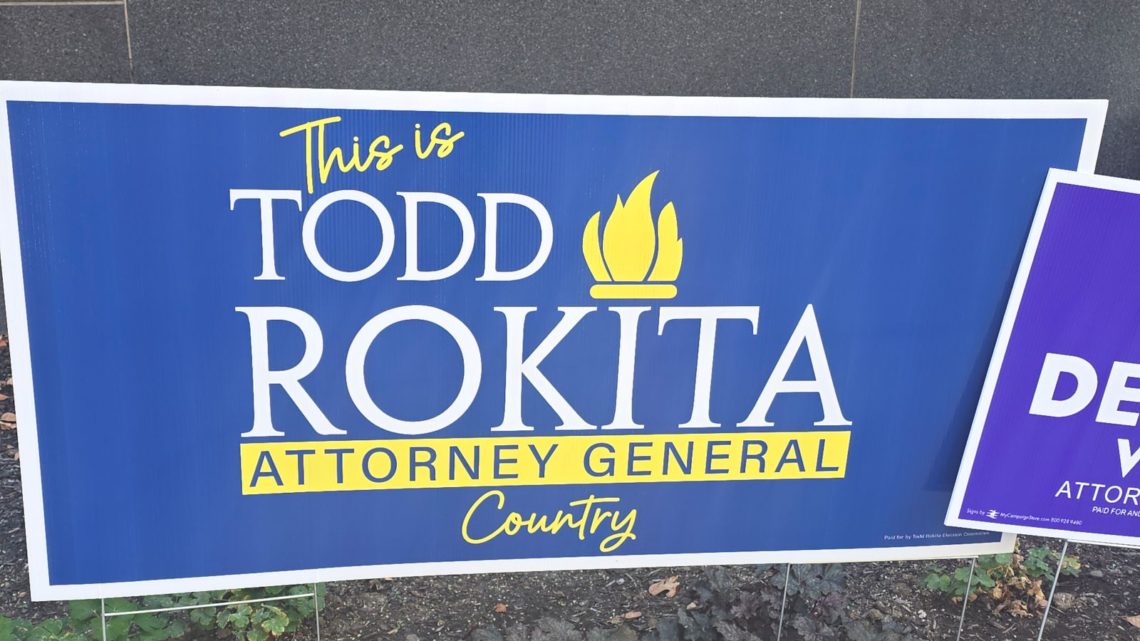by Abdul-Hakim Shabazz
I am the first person to admit there is no love lost between me and Indiana Attorney General Todd Rokita. However, my love for the law and the legal profession exceeds my disdain for Rokita. That is why, this past Friday, I filed a complaint against him with the Indiana Attorney Disciplinary Commission.
The basis for my complaint centers around comments Rokita made a couple of Sundays ago in the Fox 59/CBS 4 IN Focus debate with Democrat Destiny Wells. Full disclosure: Wells and I have always had a good relationship, as I do with 90 percent of the political class in Indiana. During the debate, the issues of pay came up for the attorneys in the office. Rokita stated, “You quit because you didn’t get enough pay. “Other people stayed because they didn’t care about pay.” Wells asked Rokita if he had read the letter, and he responded, “Yes”.
So Abdul, what’s the problem, you might be asking. And that’s a fair question.
Well, that letter was in Wells’ personnel file. In my disciplinary commission complaint, I argued that Rokita violated the law by disclosing the contents of that letter in her personnel file.
That, I maintain, was a violation of the Rules of Professional Conduct
Under Indiana Code I§ 5-14-3-4, the personnel files of public employees and applicants for public employment are confidential except for the following…
(A) the name, compensation, job title, business address, business telephone number, job description, education and training background, previous work experience, or dates of first and last employment of present or former officers or employees of the agency;
(B) information relating to the status of any formal charges against the employee; and
(C) the factual basis for a disciplinary action in which final action has been taken and that resulted in the employee being suspended, demoted, or discharged.
Section C is critical.
While Wells did leave the office in 2019 over a dispute regarding veteran pay, her resignation letter was in her personnel file, which, under state law, that information is considered confidential and she didn’t fall under any exemptions.
And breaking state law runs afoul of the Rules of Professional Conduct,
An attorney violates Rule 8.4(b) of the Rules of Professional Conduct for Attorneys at Law by committing criminal acts that reflect adversely on his honesty, trustworthiness, and fitness as a lawyer in other respects.
Now you see what I’m talking about.
By publicly disclosing the reasons for her resignation, Rokita, I argue, broke the law—plain and simple. And for the record, I was not the only person researching this. I’ve been told there are numerous Human Resources attorneys out researching the same thing, so don’t be surprised if there are many more complaints filed against Rokita regarding this matter.
And complaints are no laughing matter. Last year, the Indiana Supreme Court received nearly 1,500 complaints from the public., Two of which were filed against me. Close to 1,185 of them were dismissed a having no misconduct; my two fell under that category. So for the Commission to hear a complaint and find merit is serious business. I think my complaint will fall under the meritorious category. We’ll see.
If the Commission does recommend Rokita be held accountable, there are six possible outcomes.
(1) permanent disbarment from the practice of law;
(2) suspension from the practice of law without automatic reinstatement;
(3) suspension from the practice of law for a fixed period of time, not to exceed 180 days, with provision for automatic reinstatement after the expiration of the fixed period, upon any conditions as the Supreme Court may specify in the order of suspension;
(4) a public reprimand;
(5) a private reprimand; or
(6) a private administrative admonition.
If the Court finds Rokita violated the Rules of Professional Conduct and they exercise options #1 or #2, he would have to step down as attorney general. Under state law, IC 4-6-1-3 specifically, to hold the job, one must be duly licensed to practice law in Indiana. The Governor would have to make his replacement should Rokita win re-election.
And here’s the irony: Rokita has only himself to blame for this. Let’s go back to the debate; when the subject of pay came up, Wells asked him if he had read the letter, to which Rokita responded yes, and he did. He could have only read the letter if he read her file. He could have said, “Destiny, you admitted that you left for pay in news articles.” And had he done that, we wouldn’t be here right now. But he didn’t; his very public acknowledgment that he read the letter proves he saw it and disclosed the confidential contents.
Before the Rokita enablers start yelling that I am engaging in election interference, they may want to talk to their candidate, who disclosed confidential information during a televised public debate. After that, I will gladly debate/discuss election interference. Until then, save it for the commission.
Now, with all that said, the Attorney General is entitled to due process, which means he is entitled to a hearing and to offer up any defenses, and I will defend his right to that. And I look forward to seeing what defense(s) he has to offer. Because as I stated at the beginning of this, my love of the law has been and always will be greater than my dislike for the current office holder.
Abduil-Hakim Shabazz is the editior and publisher of Indy Politics. He is also an attorney licensed to practice in Indiana and Illinois.











